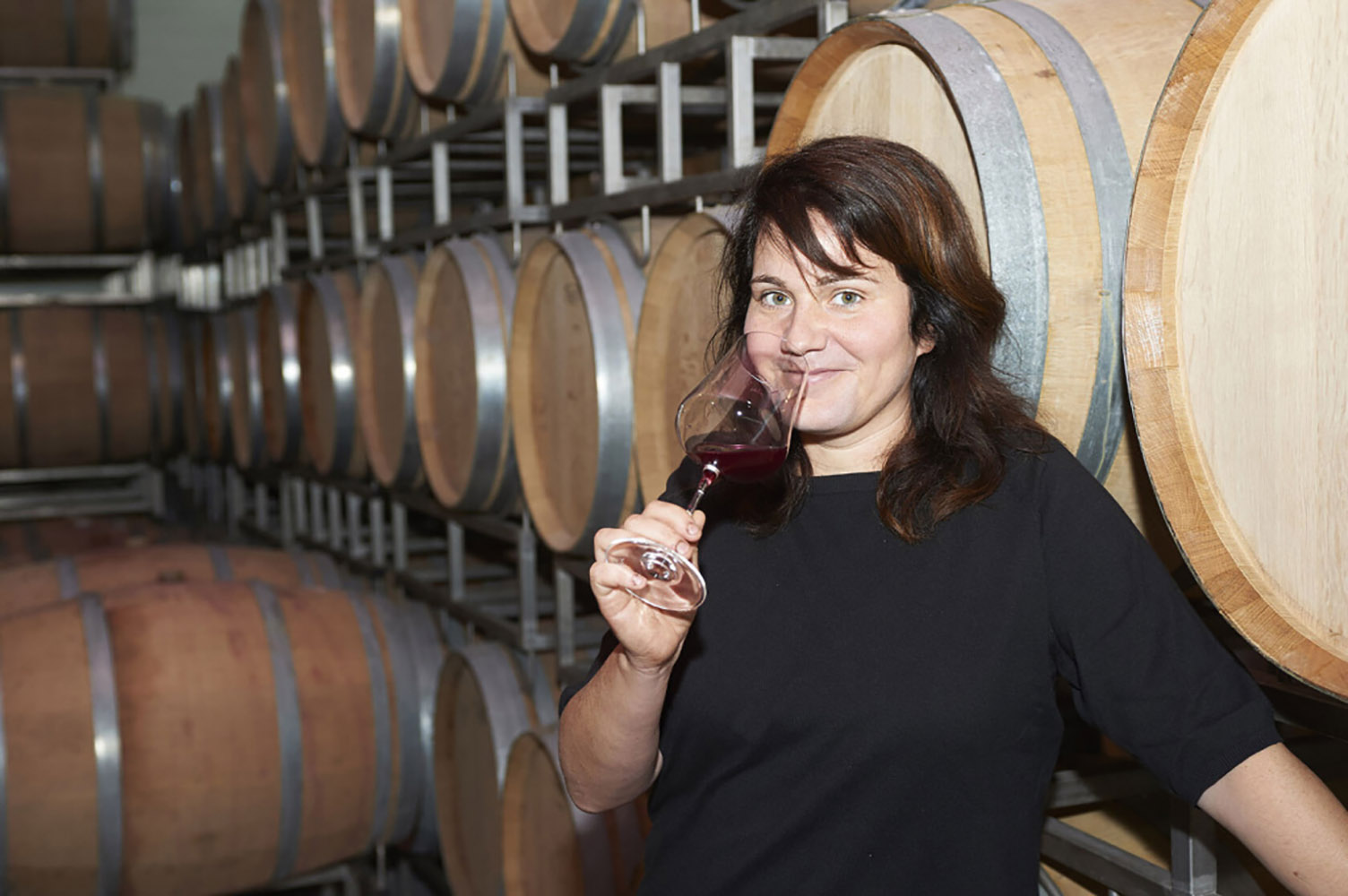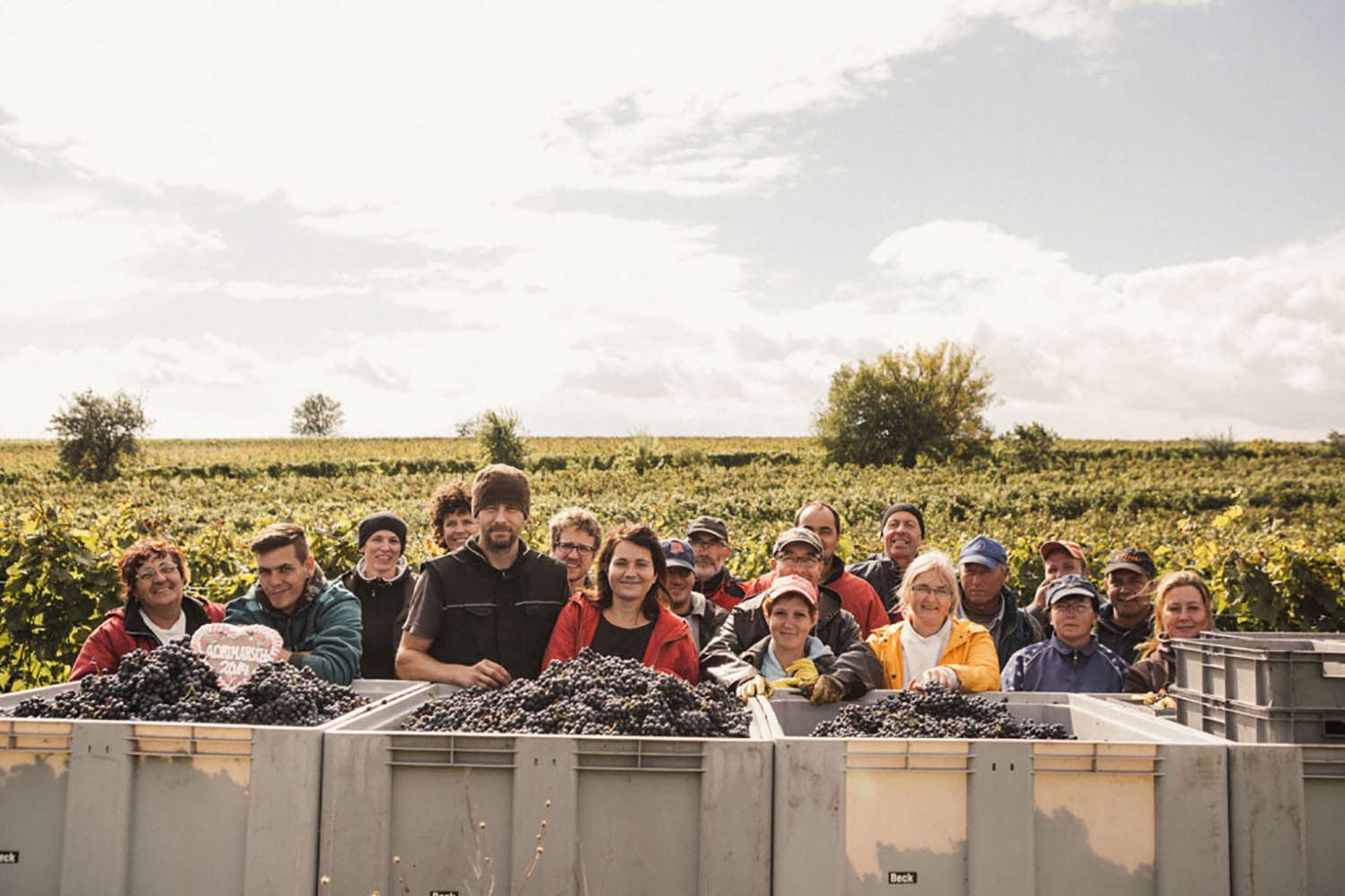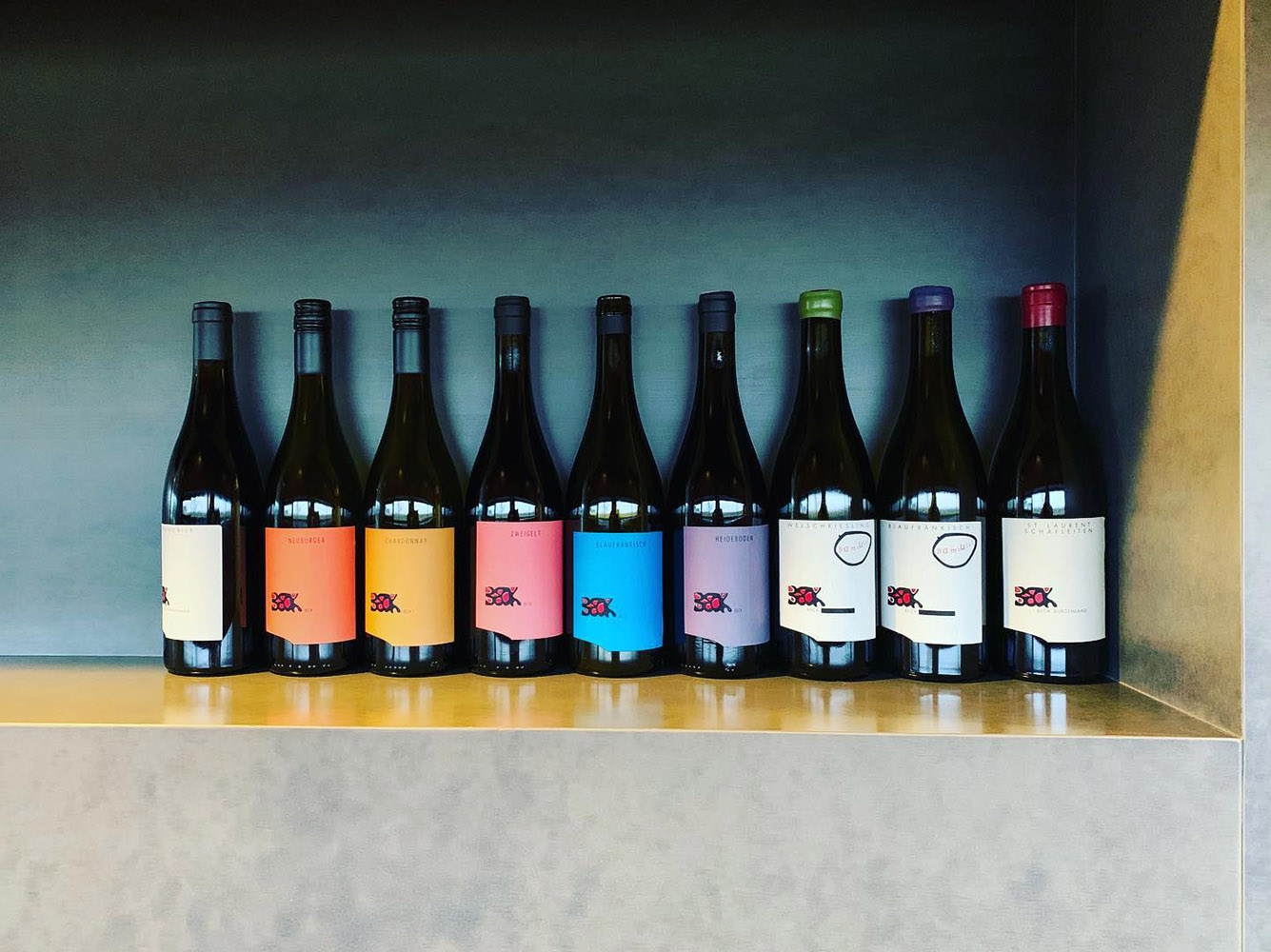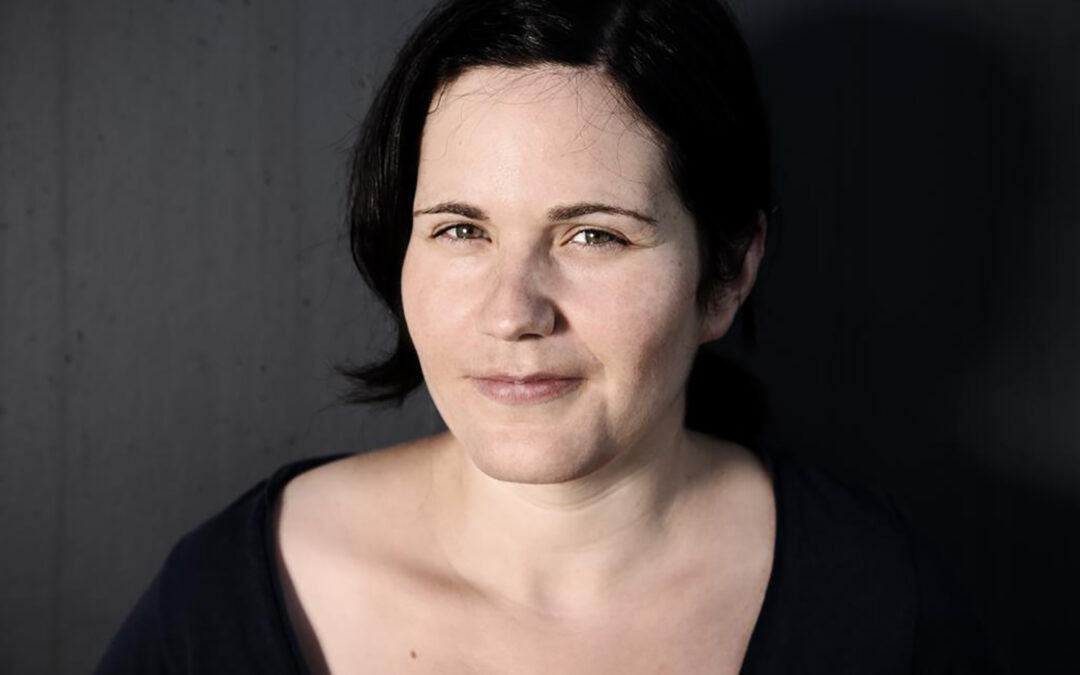Viticulture in Weingut Judith Beck
The winery owns a total of 15 hectares of vines in Gols, with holdings in the vineyard sites of Altenberg, Gabarinza, Salzberg and Schafleiten. 85% of the area is planted to red varieties – Blauer Zweigelt, Blaufrankisch, St. Laurent, Pinot Noir and Merlot, with the remaining 15% planted to white varieties – Welschriesling, Pinot Blanc and Chardonnay. In addition, grapes are brought in from another 5 hectares in the communes of Apetlon, Halbturn and Winden, and used in the production of the basic red wines. Vines are planted at high densities of up to 7,000 vines per hectare to limit yields and ensure ripe fruit at harvest time. Soils range from loam and clay on the lower vineyards to limestone, higher up on the ridges. All grapes are hand-harvested.
The Becks built a new modern, functional winery and ageing cellar in 2005. It allows Judith to manipulate her wines as little as possible in the vinification process, resulting in wines that show the pure and vivid expression of the varietal and the unique vintage character. Judith Beck’s wines can be defined as elegant, fruit-forward and complex expressions of her vineyards.
Judith Beck’s Creations
Beck’s focus is on the vine growing. Biodynamics is an art of healing which takes advantage of the holistic curativeness of nature. The aim, to strengthen the natural resistance of the plant.
“We encourage the formation of humus, as a basis of healthy soils, by regularly applying cattle manure which we prepare ourselves and by cultivating grass between the rows. Herbal teas (such as stinging nettle, chamomile, field horsetail …) and biodynamic field sprays such as horn manure and horn silica are used under the consideration of moon rhythms; their purpose being to strengthen resistance and further the physiological ripeness of grapes.”
The goal is to make authentic wines with an individual character while at the same time maintaining healthy soil and a balanced ecosystem. Part of this is also the absence of yeasts. Fermentation of the red wines starts spontaneously (without the help of selected yeasts) in stainless steel tanks or in open wooden casks. Part of the red wine matures in large wooden barrels (1000 to 2000 litres). Judith uses barrels made of third generation acacia wood. This larger format accentuates the clear fruit of Zweigelt and Blaufränkisch; and thus is the ideal vessel. “We believe that wine needs to breathe in order to develop thoroughly; that’s the reason why we do not use stainless steel tanks for maturation at all.”
The estate produces a range of wines, from a delicate white that is fruity and fresh, as is typical of the Weissburgunder grape – the name Austrians give to Pinot Blanc – and seen by many as an alternative to drier offerings from Alsace.
The Zweigelt is much lighter than many Austrian reds, with fruits and spices coming to the fore and making it an excellent accompaniment for red meat. Unlike many Austrian winemakers, Judith doesn’t use heavily toasted oak barrels to create rich and powerful reds, so fruit and spice also dominate her Blaufränkisch, which is made from a single grape.
Check out our favourites from Judith Beck below!





